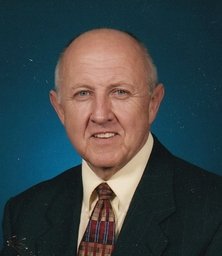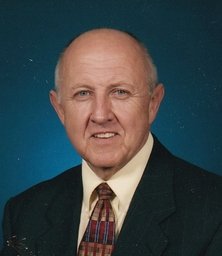John 1: 5 “The light shines in the darkness and the darkness has not overcome it.”
In a recent article, the concept of the speed of darkness was addressed. As we know, darkness is motionless while light is constantly moving.
At the speed of light, 186,282 miles per second, we can only see about 300 years back in time when looking up at our visible night sky. Some astronomers believe the universe is 93 billion light years across because they can see 46 ½ billion light years with their telescopes.
Of course we’re not in the center of the universe and the truth is we really don’t know where we are.
The problem is, those galaxies emitted the light seen by astronomers 46 ½ billion years ago and they possibly are different now or moved to another point in the universe or do not exist at all.
Some astronomers believe the universe is expanding faster than the speed of light. If true, no one alive today or in what future that mankind has left on earth will ever know the actual size.
Psalm 90: 2 “Before the mountains were brought forth, or ever thou had formed the earth and the world, even from everlasting to everlasting, thou art God.” With many Bible verses we can only speculate on some of the content but in this case it is very clear; God is eternal.
If God is everlasting/eternal as stated in Psalm 90: 2, Isaiah 40: 28 and 1 Timothy 1: 17, why would it be irrational to believe the universe is eternal and infinite?
We cannot see to the outer edges of the universe because it is not where it was 46 ½ billion years ago so we’ll never know how big it is or if there is an end point.
Of course we humans operate in a time frame so we think we have to place everything in a time frame with a beginning point and an ending point. Nonsense! God is eternal; so there is no beginning or end with Him.
Genesis 1: 1 and John 1: 1 begin with the same words: “In the beginning.” We do not know when that was. God had no beginning because He is eternal and He will have no end.
Could “In the beginning” be referring to the entire universe? It’s reasonable to believe that; if you’re wrong it will not affect your eternal destination. What you believe about Christ Jesus is what matters.
Christians must always teach that eternal salvation is attained by a faith-based belief (Ephesians 2: 8) in Christ Jesus crucified (Matthew 27: 35) for the remission of sin (1 John 1: 9), resurrected (Matthew 28: 6) and ascended alive into Heaven (Acts 1: 9).
Perhaps “In the beginning” is referring to the earth and the earth’s atmosphere or the solar system (sun, moons and planets), the galaxy or the visible night. Does it really matter? We should admit there are some things we do not know and only have opinions or speculations.
One common product in our universe is heat (burning hydrogen) and the light it emits. Without light we could not exist. It sustains our physical bodies, it produces food for our sustenance and it provides visibility.
A unit of light is a photon. Photons have no mass or electric charge, but they carry energy and momentum.
On earth we exist in three dimensions: length, height and width. In outer space there is a fourth dimension: time. Distance is measured in light years. Because of the vastness of space, humans cannot conceptualize in terms/measurements we normally use.
One light year is the distance light travels in one year which is about 5.83 trillion miles. The distance to our nearest solar neighbor, Proxima Centauri is 4.3 light years or a little over 25 trillion miles.
Light is a fascinating concept considering we are exposed to it about 2/3 of every day. We tend to not notice the physical, psychological, and other conceptual influences it has on our existence.
People living in extreme northern and southern latitudes are exposed to darkness about six months of every year. We are told many in those areas suffer emotional problems mostly because of the long periods of darkness.
Fish living under water in caves, in some places, have not only lost their eyesight, but actually have no eyes. After millions of years in that environment of perpetual darkness they apparently evolved.
We find it interesting to observe parts of the world that have an abundance of lighting and others that do not. One summer not long ago I had a night flight from Chicago to Nashville and another that same year from Detroit to Nashville. It was impossible to tell where one town/city ended and another began. The eastern U.S. is like one big light fixture.
On a flight to Rio de Janeiro, flying over the Amazon jungle, the only light I saw was lightning strikes. On flights from various European gateways, over the Sahara desert to Nairobi, the desert floor was totally black dark.
On one flight I saw small flickers of yellow light in the desert. Wondering what they were, it soon became obvious they were campfires.
Nomads live in the desert in North Africa and in the Middle East much like Abraham, Isaac and Jacob did 4000 years ago. Some of them herd animals while others are caravans.
Those little flickers of light could remind us of ourselves. Matthew 5: 14 “Ye are the light of the world. A city that is set on a hill cannot be hid.” Jesus was talking to His disciples telling them they have a responsibility to teach the truth and to guide others.
You may be that flicker of light in the desert for someone. Never underestimate your ability and God given power (Acts 1: 8a) to help someone have a better life. Jesus told Ananias of Saul/Paul (Acts 9: 15) “He is my chosen vessel to take the Gospel to the Gentiles.”
Are you a “chosen vessel?” The person you influence to the Gospel of our Jesus will be just as important to God as any won by the Apostle Paul.
Van Yandell is a retired Industrial Arts teacher, an ordained gospel evangelist and missionary from Fredonia, Kentucky. His email is vmy3451@gmail.com.





